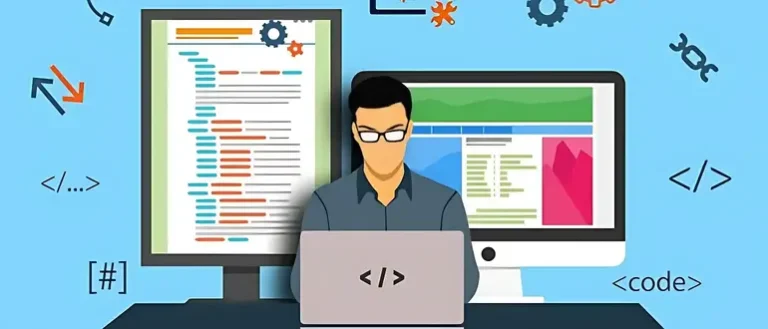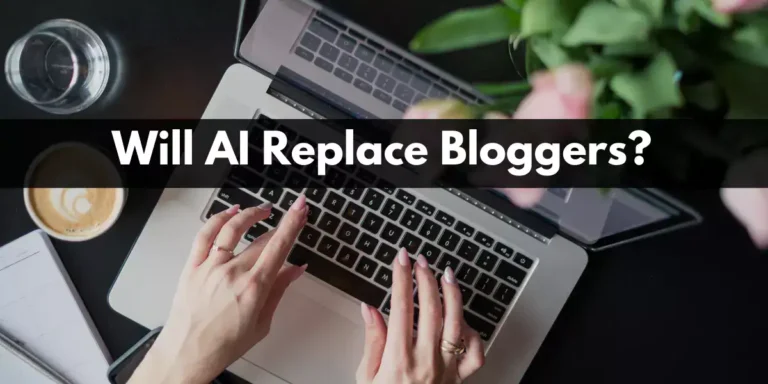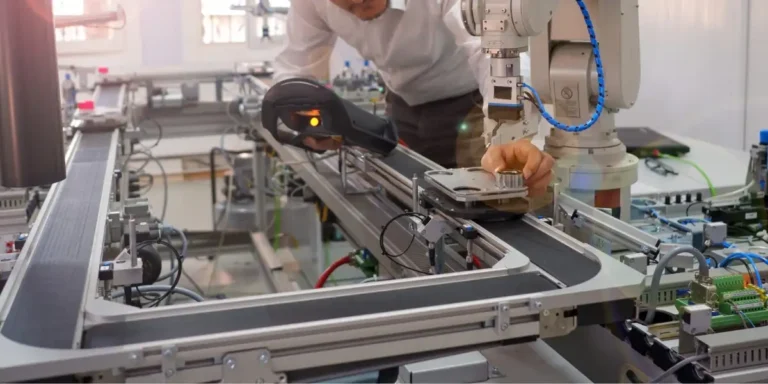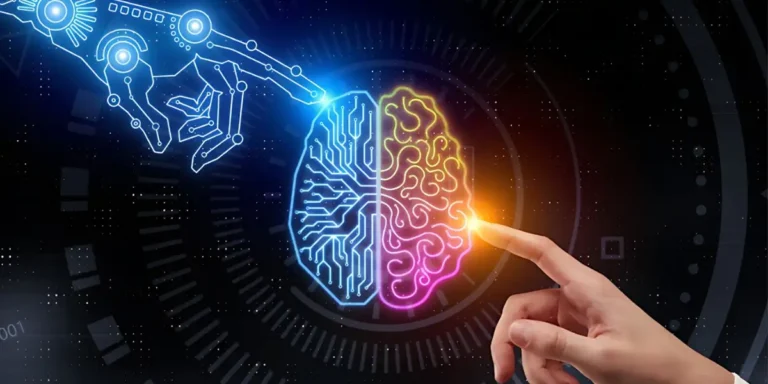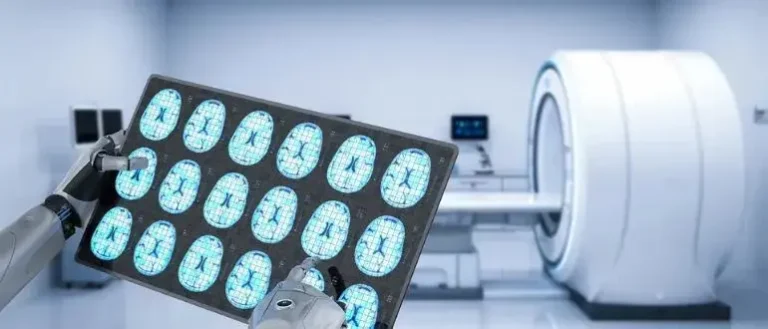With the increasing use of machine learning algorithms and predictive analytics, many economists are starting to wonder whether AI will eventually replace human economists.
While some argue that AI can augment the work of economists, others fear that it may render their expertise irrelevant.
In this blog post, we’ll delve deeper into this topic and explore how AI changes the economic job market and the required skills to hold their profession, benefits, and limitations of AI in economics.
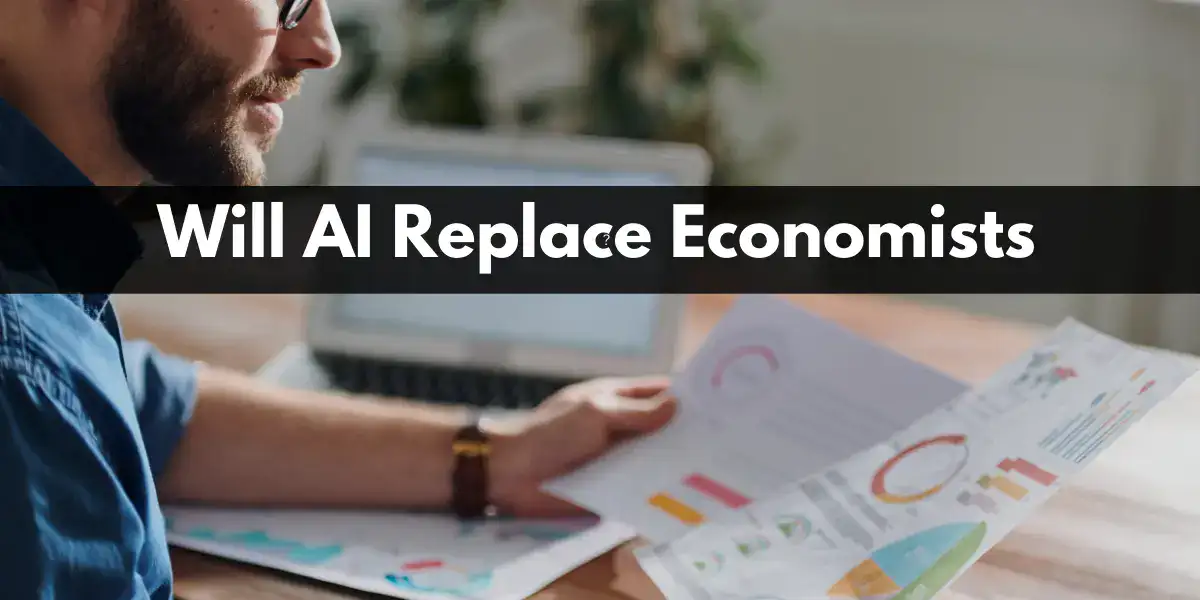
Will AI Replace Economists?
While AI is already replacing specific tasks economists perform, it’s unlikely they will be entirely replaced. Economists provide interpretation, policy recommendations, and strategic thinking.
Economics is a social science dealing with human behavior, which AI may not fully comprehend. Economists will remain essential, but there may be a shift in required skills, and AI may collaborate with economists for more efficient analysis and prediction.
How Is AI Changing The Job Market For Economists?
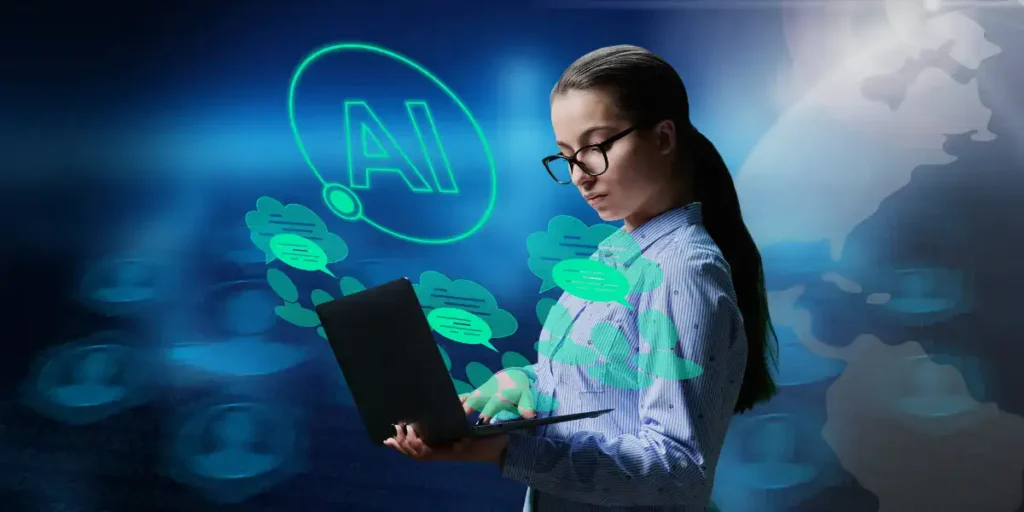
Increased Efficiency:
AI technology has the potential to increase the efficiency of many tasks performed by economists.
For example, AI algorithms can quickly and accurately analyze large sets of data, which is essential for economic forecasting and modeling.
This has allowed economists to perform their work more quickly and efficiently than ever before.
New Opportunities:
The integration of AI technology into economics has created new job opportunities for economists.
Many companies are looking to hire economists who have experience with AI and machine learning, as they are highly sought after in the job market.
This has created a demand for individuals who can use AI to analyze and interpret economic data.
Changing Skillsets:
The integration of AI technology into economics has also changed the skillsets required for economists. Traditionally, economists have been trained in statistics, econometrics, and economic theory.
However, with the integration of AI technology, economists are now required to have programming, data analysis, and machine learning skills. This has led to a shift in the type of education and training required for economists.
Reduced Demand for Certain Skills:
The integration of AI technology into economics has also reduced the demand for certain skills.
For example, manual data entry and basic statistical analysis can now be automated through AI, reducing the need for economists to perform these tasks manually.
This has led to a shift in the job market, where economists are now expected to have more advanced skills in data analysis and programming.
Potential Job Displacement:
Some jobs may be lost as a result of the application of AI technology in economics. For instance, as AI algorithms develop, certain work carried out by economists may be totally automated.
This can result in a decline in the need for specific sorts of economists. It’s crucial to remember, too, that AI technology also has the ability to open up brand-new career prospects.
What Skills Will Future Economists Need To Work Alongside AI?

Understanding of Machine Learning
Understanding machine learning (ML) is one of the most important abilities that next economists will require.
A subfield of AI known as machine learning (ML) allows computers to learn from data without explicit programming.
Therefore, it is crucial for economists to comprehend how machine learning algorithms function, how to analyze data, and how to interpret the outcomes.
For instance, machine learning algorithms may be used by economists to forecast stock prices, examine market trends, and spot patterns in consumer behavior.
Economists may use AI to acquire insights into economic trends and patterns if they have a basic grasp of machine learning and its applications.
Data Analysis
Economists must have a solid understanding of data analysis, given the prevalence of big data. To make wise judgments, they must be able to gather, prepare, and evaluate data.
Economists still need to understand how to interpret the results even if AI can handle massive volumes of data more rapidly and correctly than humans.
For instance, economists can utilize data analysis to pinpoint consumer preferences, evaluate the effects of governmental actions, and forecast economic expansion.
Economists can acquire an understanding of economic patterns and improve their decision-making by examining data.
Programming
Programming is becoming increasingly important for economists, especially as AI becomes more prevalent.
Economists need to be proficient in programming languages such as Python, R, and MATLAB to build machine-learning models and analyze data.
Programming skills can also help economists automate repetitive tasks and streamline workflows.
For example, economists can use programming to build machine learning models that predict stock prices or automate collecting and analyzing data.
By automating tasks, economists can focus on more strategic work that requires critical thinking and analysis.
Critical Thinking
Despite the rise of AI, critical thinking remains a crucial skill for economists. Economists must know how to analyze complex problems, identify patterns, and develop solutions.
They also need to know how to evaluate data validity and make informed decisions based on that data.
For example, economists can use critical thinking skills to analyze economic policies, identify areas of economic growth, and predict market trends.
By using critical thinking skills, economists can make informed decisions that benefit society.
Communication
For economists working with AI, good communication skills are essential. Economists must translate complicated economic concepts and data.
This helps them effectively communicate with non-economists like policymakers and the general public. Additionally, they must effectively convey their findings to team members and stakeholders.
Economists have the ability to explain the economic effects of government policies. They can also identify the advantages of investing in specific sectors of the economy and warn of the dangers involved in certain economic decisions.
Their strong communication skills enable them to convey these insights effectively. Economists may guarantee that their thoughts and suggestions are understood and taken into consideration by speaking clearly.
What Are The Benefits Of Using AI In Economic Research?
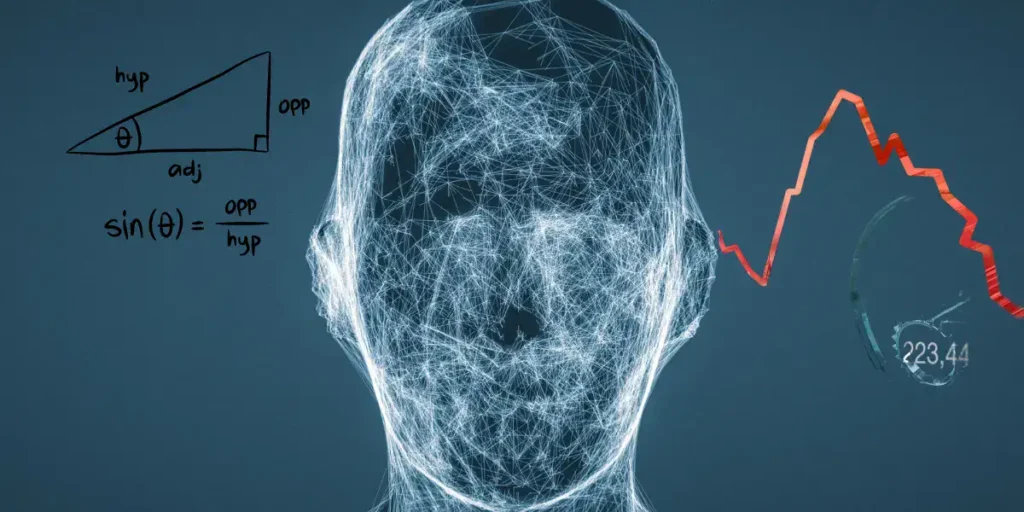
Increased Efficiency
AI can assist economists in processing massive volumes of data quickly and accurately. AI-powered solutions can fully comprehend market trends since they can examine data from a variety of sources, such as financial reports, social media, and online polls.
Researchers may be able to spot patterns, trends, and insights as a result that would not have been obvious otherwise.
AI may greatly reduce the time and effort needed to do research by automating data collecting and processing, which increases efficiency.
Better Predictions
Researchers can use AI to help them anticipate upcoming economic trends more precisely. AI algorithms can find patterns and trends that can be utilized to predict future economic situations by examining historical data and present market conditions.
For corporations and governments, this may be very helpful when making decisions. For instance, forecasting future interest rates, inflation, and stock prices can assist firms in making wise financial planning and investment decisions.
Improved Risk Management
Economic academics may use AI to uncover possible dangers and weaknesses in the economy.
Artificial intelligence systems can identify trends that point to a future economic catastrophe by examining data from a variety of sources.
This can assist organizations and governments in taking preventive steps to reduce risks and stop economic volatility.
Determining whether businesses are at risk of bankruptcy, for instance, may be done by analyzing financial data. This information can then be used to assist investors make judgments about their investments.
Enhanced Decision-Making
AI can help economists make better judgments by supplying precise and up-to-date data. Businesses may find this to be very helpful during their strategic planning procedures.
Businesses may get insights into market trends, consumer behavior, and rival strategy through AI-powered technologies, allowing them to make better decisions.
Businesses can find areas where their goods or services need to be improved, for instance, by examining client feedback on social media.
Cost Savings
Businesses and governments may save money by using AI to lower economic research costs. Research may be completed with a lot less time and effort by automating data gathering and processing.
Additionally, it can cut down on the need for human resources, which can save a lot of money. Businesses and governments can save time and money, for instance, by automating data collection from financial reports.
What Are The Limitations Of Using AI In Economics?
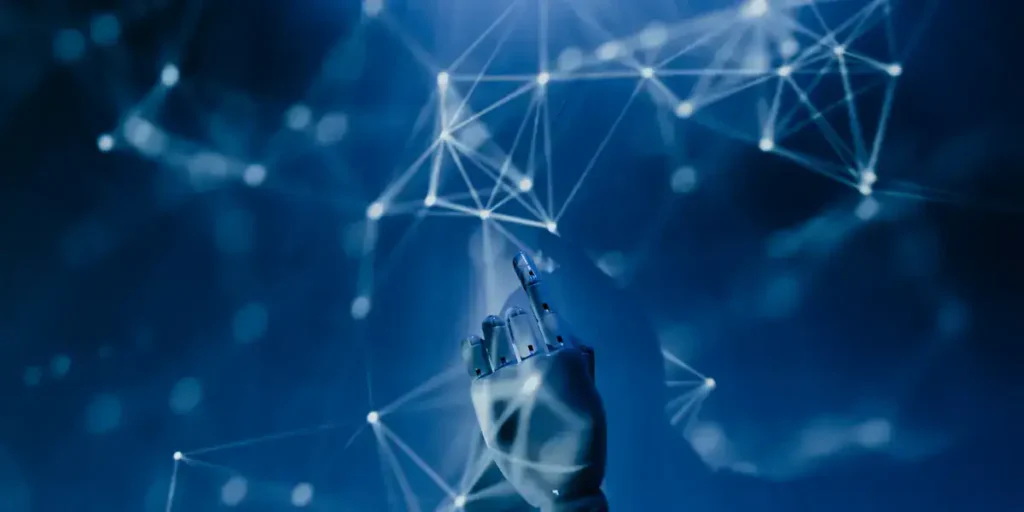
The Difficulty of Simulating Human Behavior
AI can imitate human behavior in economics, although doing so can be difficult given how complicated human behavior is.
Because AI actors are so unusually logical, they might not act like people in real life. It may be challenging for an AI system to effectively capture human psychology and social dynamics when simulating human behavior.
Lack of Common Standards
Since there are currently no accepted standards for AI in economics, it can be difficult to compare various AI systems or guarantee that the outcomes of AI are accurate and trustworthy.
This may restrict the application of AI in some fields, such as policymaking, where precision and dependability are crucial.
Lack of Transparency
The lack of transparency in the decision-making process is one of the major drawbacks of utilizing AI in economics.
The factors influencing certain outcomes might be tough to determine since AI models can be complicated and challenging to comprehend.
A machine learning system that forecasts the behavior of the stock market, for instance, could yield correct findings, but it might be challenging to comprehend how it arrived at those conclusions.
Bias
Bias is yet another drawback of employing AI in economics. Since AI models are only as good as the data they are trained on, biased data will result in biased AI models.
This may provide incorrect forecasts and analyses that reinforce preexisting biases in the data.
For instance, a mortgage approval prediction AI model can be biased against particular ethnic groups, resulting in uneven access to loans.
Overreliance on Historical Data
Since historical data is typically used to train AI models, this can limit their capacity to correctly predict future events that deviate from historical trends.
For instance, a consumer behavior prediction AI model may find it difficult to take into account rapid shifts in customer behavior that were not previously noticed.
Lack of Context
Lack of context can be a limitation for AI models. They are made to examine data and draw conclusions only from it, without necessarily taking the larger economic, social, or political context into account.
A new policy’s potential impact on existing policies or market forces, for instance, might not be taken into account by an AI model designed to forecast its effects.
FAQs
What Are The Potential Benefits Of Using AI In Economics?
AI can revolutionize economics by using unsupervised or reinforcement learning algorithms to analyze infinite sets of relations and variables, reducing AI bias in economic policymaking.
What Are The Potential Drawbacks Of Using AI In Economics?
While AI can reduce bias in economic policymaking, it may also introduce new forms of bias. Additionally, AI may not be able to replicate the judgment and intuition that human economists bring to their work.
Can AI Completely Replace Human Economists?
While AI can perform some tasks more efficiently than human economists, it is unlikely that it will completely replace them. Human economists can bring a level of judgment and intuition to their work that AI may not be able to replicate
What Is The Risk Of Automation For Economists?
The occupation of economists has an automation risk score of 51%, meaning that there is a moderate risk that economists could be replaced by automation in the future.
Will AI Lead To Job Growth Or Loss Overall?
While some industries may experience job losses due to the adoption of AI, AI is expected to lead to an overall increase in global GDP and job growth by 2030.
Conclusion
Even though AI can automate many economic operations, economists will probably still need to work.
A thorough grasp of complex systems and human behavior is required for economic analysis, as well as human judgment and interpretation.
But economists can certainly benefit from using AI, which will speed up and improve the accuracy of how they process and analyze large amounts of data.
Humans and robots will most likely work closely in economics in the future, each serving a complementary function.
